AI Development: Challenges And Opportunities.
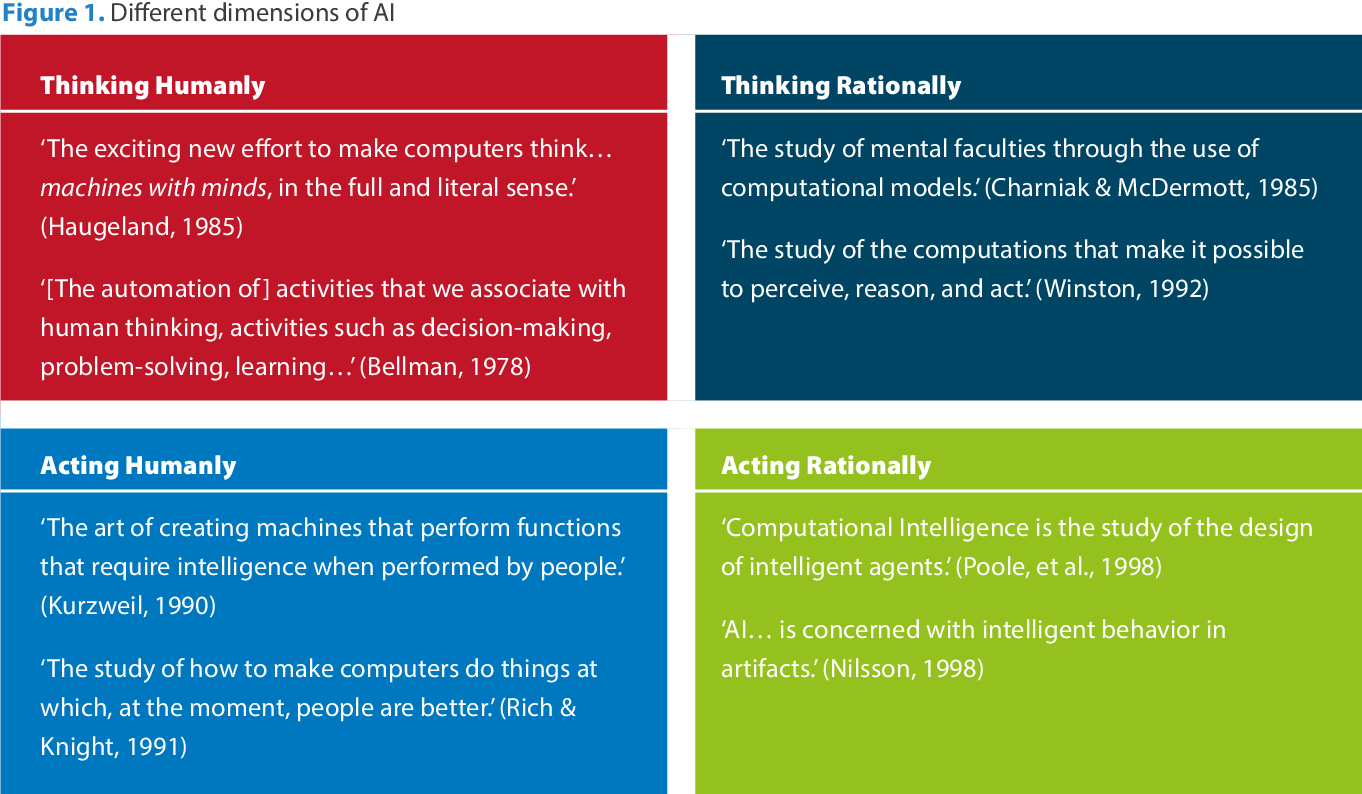
In the ever-evolving world of technology, AI development has emerged as a fascinating realm filled with both challenges and opportunities. The rapid advancements in artificial intelligence have opened doors to endless possibilities, but they also present hurdles that require innovative solutions. From tackling ethical considerations to refining the accuracy of algorithms, the journey of AI development is indeed a complex yet thrilling one. In this article, we will explore the various challenges and opportunities that arise in the realm of AI, shedding light on the potential it holds for transforming industries and shaping our future. So fasten your seatbelts, because this exhilarating journey into the world of AI is about to begin!

This image is property of miro.medium.com.
Ethical Considerations
Privacy concerns
As the use of AI continues to grow, one of the major ethical considerations is privacy concerns. AI technologies often require access to vast amounts of personal data in order to function effectively. This raises concerns about how this data is collected, stored, and used. There is a need for clear guidelines and regulations to protect individuals’ privacy and ensure that their data is handled responsibly.
Bias and discrimination
Another ethical consideration in AI development is the potential for bias and discrimination. AI algorithms are trained on historical data, which means they can inadvertently learn and perpetuate biases present in that data. This can lead to discriminatory outcomes in areas such as hiring, lending, and criminal justice. It is crucial to address these biases and ensure fairness and equality in AI systems.
Job displacement
While AI has the potential to automate many tasks and increase efficiency, it also raises concerns about job displacement. With advancements in AI technology, certain jobs may become obsolete, leading to unemployment and economic inequality. It is important to consider the impact of AI on the workforce and implement strategies to retrain and upskill workers to adapt to these changes.
Data Limitations
Insufficient and biased data
A significant challenge in AI development is the availability of insufficient and biased data. Training AI models requires large datasets that accurately represent the real-world scenarios in which the AI system will operate. However, obtaining comprehensive and diverse datasets can be challenging. Furthermore, biased data can lead to biased AI systems, perpetuating inequalities and inaccuracies.
Data privacy and security
Data privacy and security are crucial concerns when working with AI. The vast amount of data collected and used by AI systems requires strong measures to ensure its protection. Any data breaches or misuse can have serious consequences, including identity theft and privacy violations. Regulations and standards must be in place to safeguard the privacy and security of individuals’ data.
Data labeling and annotation
Preparing and labeling data for AI training is a time-consuming and resource-intensive process. It often requires human annotators to label and annotate datasets, which can be subject to human error and inconsistencies. Finding efficient and reliable methods for data labeling and annotation is crucial for the development and deployment of AI systems.
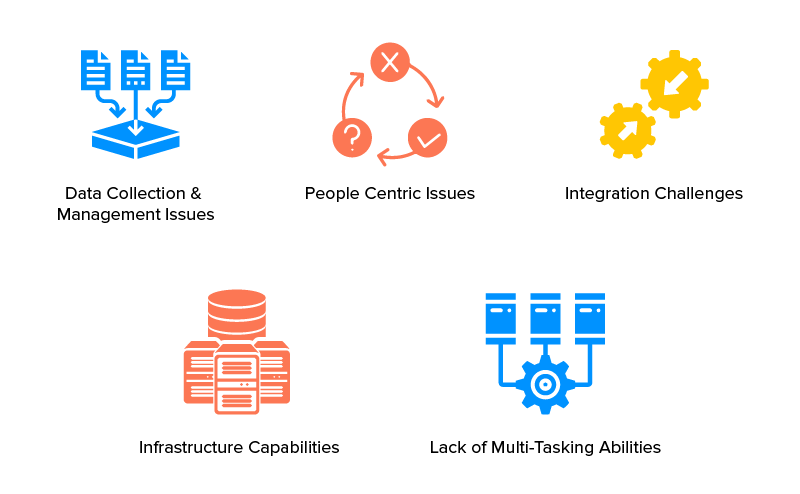
This image is property of appinventiv.com.
Technical Challenges
Lack of interpretability
One of the major technical challenges in AI development is the lack of interpretability. Deep learning models, in particular, can be complex and difficult to understand. This lack of interpretability raises concerns regarding how AI systems make decisions and whether they can be trusted. Developing methods to make AI systems more interpretable and explainable is essential for building trust and ensuring accountability.
Robustness and reliability
Ensuring the robustness and reliability of AI systems is another significant challenge. AI models are susceptible to adversarial attacks, where malicious actors manipulate inputs to mislead the system. Additionally, AI models must be reliable and perform consistently in different scenarios. Addressing these challenges requires rigorous testing, robust algorithms, and constant monitoring and updates.
Scalability and efficiency
As AI applications become more widespread, scalability and efficiency are crucial factors. AI systems need to be able to handle large volumes of data and perform computations efficiently. Developing scalable and efficient algorithms, as well as leveraging advanced hardware and infrastructure, is necessary to meet the growing demands of AI technology.
Regulatory and Legal Frameworks
Intellectual property rights
The development of AI raises questions about intellectual property rights. AI algorithms and models may be considered intellectual property, and there is a need for clear regulations and guidelines on ownership and protection of AI-related intellectual property. Balancing the need for innovation and competition with protecting intellectual property rights is a critical aspect of the legal framework surrounding AI.
Liability and accountability
Determining liability and accountability in AI systems can be challenging. If an AI system makes a harmful decision or causes damage, who should be held responsible? Is it the developer, the organization using the AI system, or the AI system itself? Establishing clear frameworks for liability and holding all parties accountable is necessary to address the potential risks and ensure fair and just outcomes.
Transparency and explainability
Transparency and explainability are essential aspects of ethical AI development. Individuals impacted by AI systems should have a clear understanding of how decisions are made and the factors involved. This requires transparency in the use of algorithms and data, as well as the ability to provide explanations for decisions made by AI systems. Establishing regulations that promote transparency and explainability can help build trust and ensure ethical AI practices.
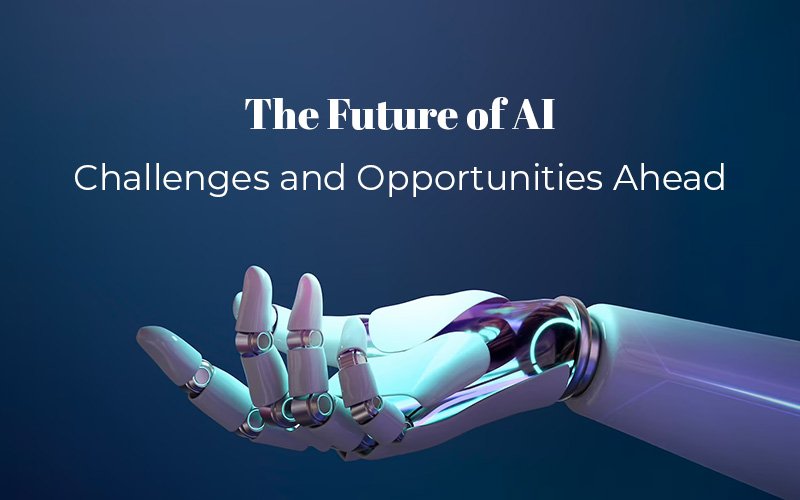
This image is property of thecriticalscript.com.
Workforce Skills and Education
Upskilling the workforce
AI development presents opportunities for upskilling the workforce. As certain tasks become automated, there will be a growing demand for skills in areas such as data analysis, AI programming, and algorithm design. Providing training and educational opportunities to enable individuals to acquire these skills is essential to prepare them for the changing job market and ensure inclusivity in the AI revolution.
Education and training
Education plays a crucial role in preparing individuals for the AI-driven future. AI literacy should be integrated into school curricula to ensure that students are equipped with the knowledge and understanding of AI technology. Additionally, providing ongoing training opportunities for professionals already in the workforce is necessary to keep up with the advancements and application of AI.
Reskilling programs
The development of AI will inevitably change the nature of many jobs. Reskilling programs must be implemented to support individuals who may face job displacement. These programs can provide them with the necessary skills to transition into new roles or industries. Collaboration between governments, educational institutions, and businesses is crucial in designing and implementing effective reskilling programs.
Social Impact
Socioeconomic inequality
AI development has the potential to exacerbate socioeconomic inequality. If access to AI technology and its benefits is not distributed equitably, it can widen the gap between the rich and the poor. Addressing this social impact requires policies and initiatives that ensure fair access, affordability, and inclusivity in AI deployment. It is essential to consider the societal implications and actively work towards reducing inequality.
Algorithmic decision-making
AI algorithms increasingly play a role in decision-making processes, such as hiring, loan approvals, and criminal justice. However, there is a need to ensure that these algorithms are fair, unbiased, and accountable. Algorithmic decision-making should be transparent, subject to scrutiny, and regularly audited to avoid discriminatory outcomes and maintain trust in the system.
Ethical AI adoption
Promoting ethical AI adoption is crucial for the responsible development and deployment of AI technology. Businesses and organizations must integrate ethical considerations into their AI development practices and decision-making processes. This includes implementing guidelines and standards for responsible AI use, addressing biases and discrimination, and prioritizing the well-being and privacy of individuals.
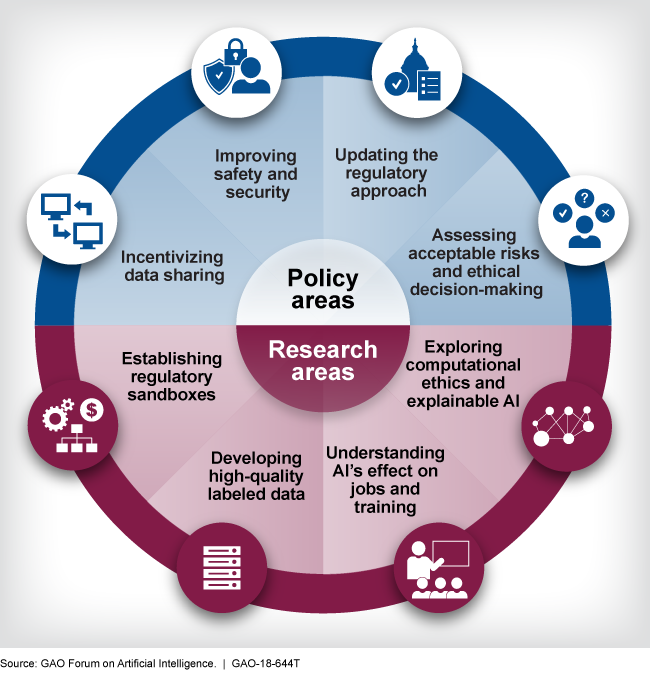
This image is property of www.gao.gov.
Infrastructure and Resources
Computational power and hardware
The development of AI systems often requires significant computational power and specialized hardware. As AI technology advances, there is a need for continued investment in infrastructure to support the growing demands. Adequate computational resources and high-performance hardware are essential to enable the training and deployment of advanced AI models.
Technical expertise and talent
AI development requires a skilled workforce with expertise in areas such as machine learning, data science, and software engineering. There is a need to ensure a sufficient supply of technical talent to meet the demand for AI development and deployment. Investing in education and training programs, promoting interdisciplinary collaboration, and attracting talent from diverse backgrounds are essential to build a robust AI workforce.
Data storage and processing
AI systems rely on large-scale data storage and processing capabilities. The massive amounts of data generated and used by AI require efficient data storage and processing infrastructures. Building secure and scalable data storage solutions, as well as optimizing data processing pipelines, are essential to support the growth of AI technology.
Collaboration and Partnerships
Public-private cooperation
Effective AI development and deployment require collaboration between the public and private sectors. Governments and regulatory bodies play a crucial role in setting standards, regulations, and policies for responsible AI use. Collaboration with private industry promotes innovation, sharing of expertise and resources, and fosters an environment conducive to ethical and sustainable AI development.
Cross-industry collaboration
Collaboration between different industries is essential for maximizing the potential benefits of AI technology. AI applications can have significant impacts across sectors, and sharing insights and best practices can accelerate innovation and adoption. Cross-industry collaboration can also facilitate the identification and mitigation of challenges and risks associated with AI development.
Global AI initiatives
AI development is a global effort, and international collaboration is necessary to address challenges and maximize opportunities. Global AI initiatives can facilitate knowledge exchange, standardization of ethical practices, and coordination in addressing global issues such as climate change and healthcare. Collaboration on the international stage can help shape the future of AI in a way that benefits all of humanity.
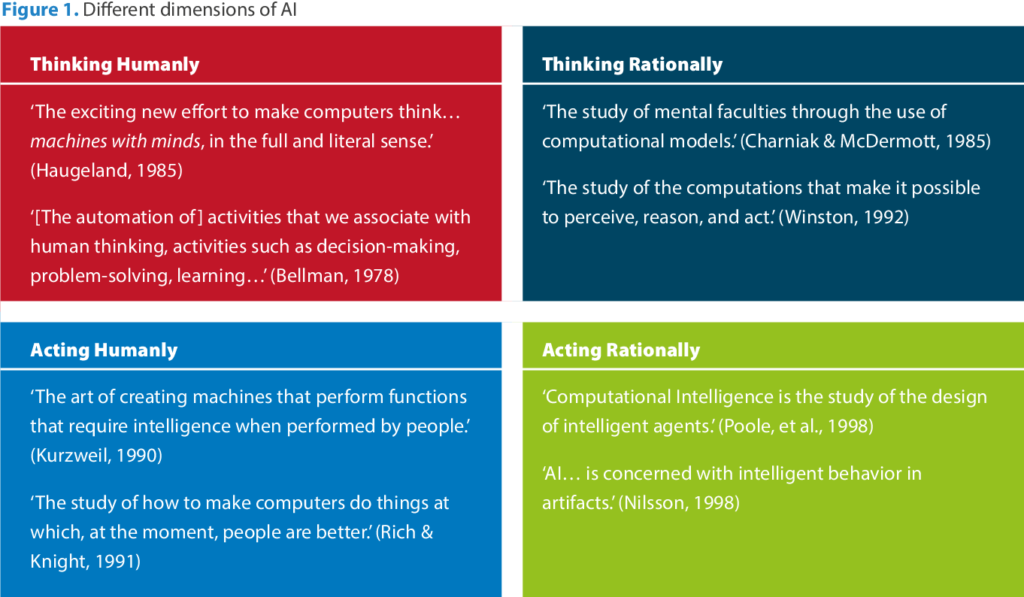
This image is property of d3i71xaburhd42.cloudfront.net.
Adoption in Different Sectors
Healthcare
AI has the potential to revolutionize healthcare by improving diagnosis, personalized medicine, and patient care. AI algorithms can analyze large medical datasets, assist in early disease detection, and enhance treatment recommendations. However, careful consideration must be given to privacy, security, and ethical AI adoption to ensure patient confidentiality and trust in healthcare AI systems.
Education
AI technology can enhance education by providing personalized learning experiences, intelligent tutoring, and automated grading. AI algorithms can adapt to students’ individual needs, identify knowledge gaps, and provide targeted support. However, it is essential to balance the use of AI with human interaction and ensure that AI systems are transparent, inclusive, and respect educational ethics and principles.
Finance
AI is already making significant impacts in the financial sector with applications such as fraud detection, risk assessment, and algorithmic trading. AI can analyze vast amounts of financial data and identify patterns and anomalies with greater accuracy and efficiency. Regulatory frameworks and monitoring are crucial to prevent biases, ensure fairness, and maintain trust in AI-driven financial systems.
Transportation
AI development is driving advancements in autonomous vehicles, traffic management, and logistics. Self-driving cars powered by AI algorithms have the potential to improve road safety, reduce congestion, and increase efficiency. However, challenges related to safety, regulation, and ethical considerations must be addressed to ensure responsible deployment and adoption of AI in the transportation sector.
Manufacturing
AI technologies are transforming the manufacturing industry through automated processes, predictive maintenance, and quality control. AI-powered robots and systems can improve production efficiency, reduce errors, and optimize resource allocation. Ensuring the safety of human workers, mitigating job displacement, and addressing ethical considerations in AI adoption are essential for achieving sustainable growth in the manufacturing sector.
Investment and Funding
Venture capital and start-ups
AI development has attracted significant investment from venture capital firms, fueling the growth of AI start-ups. Start-ups play a crucial role in driving innovation and developing disruptive AI technologies. Investment in AI start-ups provides the necessary funding and resources to bring innovative ideas to fruition and supports the development of a thriving AI ecosystem.
Government funding and grants
Governments around the world recognize the importance of AI and are providing funding and grants to support AI research and development. Public funding promotes academic research, collaborative projects, and initiatives focused on addressing societal challenges with AI. Government support plays a critical role in fostering innovation, attracting talent, and ensuring the responsible and ethical development of AI technology.
Corporate investments
Large corporations are also investing heavily in AI development to gain a competitive edge and drive technological advancements in their respective industries. These investments support research and development, talent acquisition, and strategic partnerships. Corporate investment drives innovation and fosters collaboration between academia and industry, accelerating the adoption and impact of AI technology.
In conclusion, the development of AI presents numerous challenges and opportunities. Ethical considerations, data limitations, technical challenges, regulatory frameworks, workforce skills, social impact, infrastructure, and collaboration all play significant roles in shaping the future of AI. Balancing innovation with ethical and responsible practices, fostering transparency and accountability, and ensuring inclusivity and fairness are essential for realizing the full potential of AI while minimizing potential risks and challenges. The continued investment in research, education, and collaborative efforts will enable the development of AI technology that benefits society as a whole.






